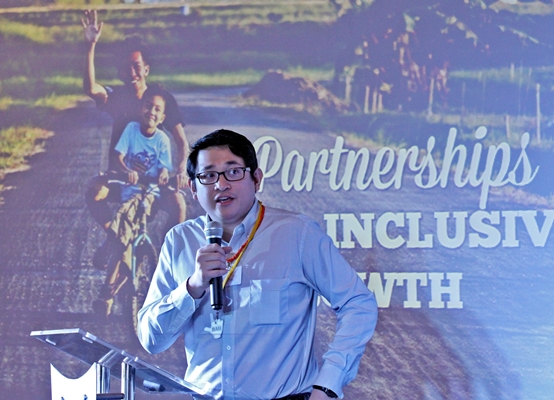By Sen. Bam Aquino
PART 1
THE Go Negosyo Act may not be at the top of our minds right now with all the details of the pork barrel scam capturing our attention. But allow me to explore other worthwhile news.
It was only 10 years ago when it was normal to see a headline declaring the Philippines as the sick man of Asia.
These days, headlines about our country in recent years include: The next economic tiger, the new breakout nation, Asia’s rising star.
But we still have a long way to go.
Many of our countrymen are still deep in poverty without access to basic services. Our unemployment and underemployment numbers remain high and unacceptable. And just one natural calamity can bring those recently graduated out of poverty back to extreme need.
In my years as a social development worker and social entrepreneur, we have seen two specific ways that can lift people out of poverty: Trabaho at negosyo, or jobs and enterprise.
Take the case of the Kalasag farmers of San Jose, Nueva Ecija. Composed of farmers from Barangays Kaliwanagan and San Agustin, they now directly supply onions to Jollibee, the country’s biggest fast-food chain.
It was not easy at the beginning. Production was inconsistent and they had a hard time selling their onions to markets. They had to deal with different kinds of traders for a fair price even if they had no background in negotiating or accounting.
In 2008, their lives changed for the better when they partnered with Catholic Relief Services (or CRS) for training in financing, running a business, and modern farming techniques. CRS as a nongovernment organization served the role of a social entrepreneur that organized the farmers while teaching them the building blocks for a start-up business.
Cooperative
After that, about 60 farmers from Kaliwanagan and San Agustin (Kalasag) established the Kalasag Farmers Producers Cooperative. With the help of the local government, they were given the opportunity to directly sell their harvest to Jollibee’s commissary.
Soon after, national government agencies such as the Department of Agriculture, and the Department of Trade and Industry plus the microfinance organization Aski contributed their own expertise as well.
From 2008 to 2009, the Kalasag farmers sold 60,000 kilos of onions. Their output rose to 236,000 kilos in 2010 and 245,000 kilos the following year.
Now, some of these farmers have their own motorcycles or tricycles, and houses made of concrete. Some of their children have now graduated from college.
When the Kalasag farmers had access to the 3Ms of Market, Mentorship, and Money, they were able to start a sustainable business and generate jobs.
The first M or Market was access to Jollibee as the direct buyer of their onions.
The second M or Mentorship was through the capacity-building programs of CRS who mentored the farmers especially when difficult problems arose.
The third M or Money was access to financing: first as seed capital via Jollibee Foundation, then second as microfinance via Aski that helped ensure financial sustainability for the Cooperative.
(To be continued)
